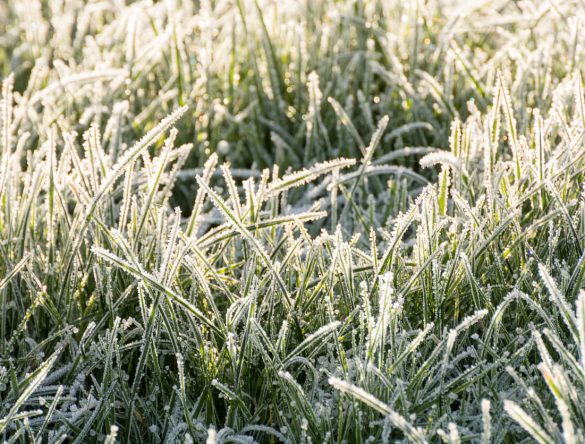-
6:30am - 5:00pm
Main Phone Number
203-629-8050 -
After Hours
Irrigation Emergency
203-223-1118 -
After Hours
Well Emergency
914-708-7063
Main Phone Number
203-629-8050Irrigation Emergency
203-223-1118Well Emergency
914-708-7063
Most people think that their lawn goes dormant in the winter. However, that’s only partially accurate. While some grasses go dormant, other types continue to grow throughout the coldest months of the year.
So, what’s really going on beneath the surface? Let’s take a closer look at the behind-the-scenes of what happens to your lawn in the wintertime.
In order to understand what happens to your lawn in the winter, it’s important first to understand what grass is and how it grows. Grass is a type of plant known as a perennial. This means that it lives for more than two years and typically grows back yearly from its root system. The roots of grass plants are very important because they store food and water. They also help anchor the plant in the ground, protecting it from strong winds and heavy rains.
Grass plants have two different types of roots: fibrous roots and storage roots. Fibrous roots are thin and spread out through the soil — they absorb water and minerals from the earth and anchor the plant in place. Storage roots are thicker and grow deeper into the ground. Their job is to store food for future use when the grass begins to grow again in the spring.
Most types of grasses do enter a state of dormancy in the winter months. This means that they stop growing and remain inactive until springtime when conditions are more favorable for blossoming. Other grasses, such as ryegrass, continue to grow throughout winter.
Now you know that it all depends on the type of foliage that you have. Whether yours is a dormant variety or a hardier ryegrass, it’s important to give it the proper care so that it can thrive come springtime!
For more information on protecting, improving, and enhancing your lawn, contact us at Summer Rain Sprinklers. We’re happy to help you find a solution that fits your unique home and budget, from irrigation systems to electrical repair and emergency servicing.